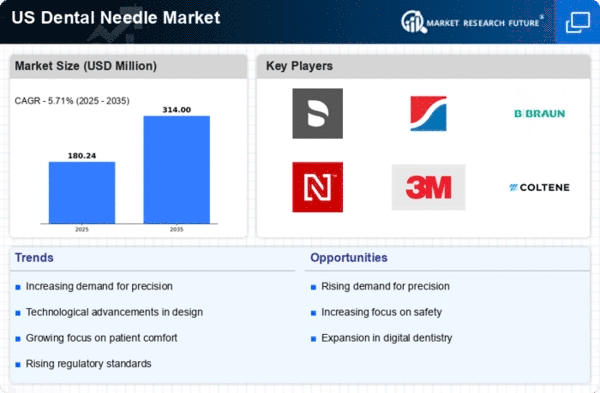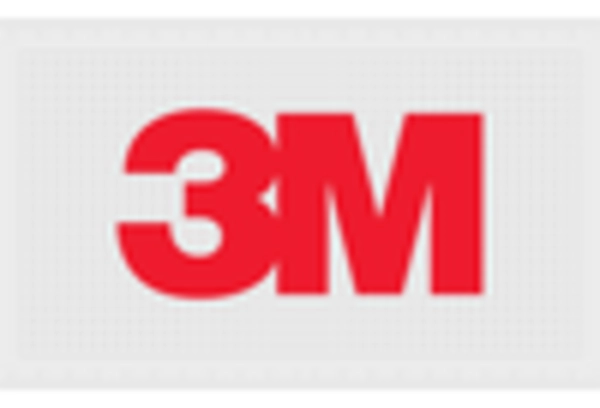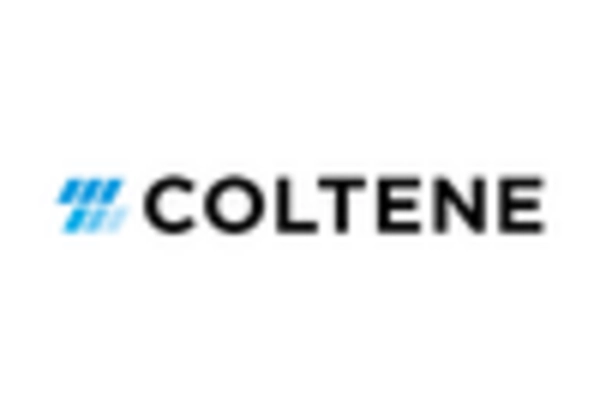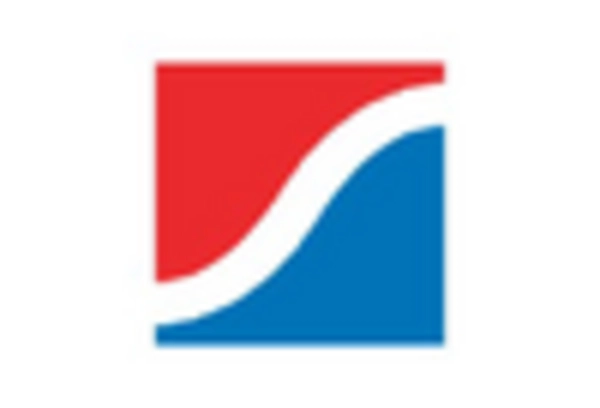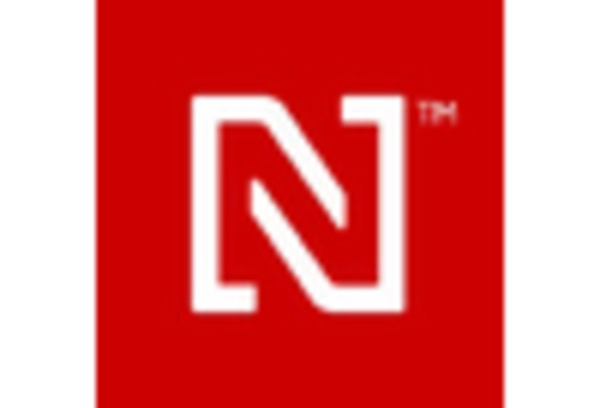Growth of Aesthetic Dentistry
The expanding field of aesthetic dentistry significantly influences the dental needle market. As more patients seek cosmetic dental procedures, such as teeth whitening, veneers, and orthodontics, the demand for effective anesthesia increases. Aesthetic procedures often require the use of dental needles to ensure patient comfort during treatment. The American Academy of Cosmetic Dentistry reports that the aesthetic dentistry market is projected to grow at a CAGR of 8% over the next five years. This growth indicates a corresponding rise in the dental needle market, as practitioners will need to invest in high-quality needles to meet the demands of their patients seeking cosmetic enhancements.
Focus on Patient Comfort and Safety
The emphasis on patient comfort and safety in dental practices is a crucial driver for the dental needle market. As patients become more aware of their treatment options, they increasingly prioritize comfort during procedures. This shift has led to the development of needles designed to minimize pain and anxiety, such as ultra-thin needles and those with specialized coatings. The dental needle market is likely to expand as practitioners adopt these innovations to enhance patient experience. Additionally, regulatory bodies are placing greater importance on safety standards, which may lead to increased demand for high-quality, reliable dental needles that meet stringent safety requirements.
Rising Prevalence of Dental Disorders
The increasing incidence of dental disorders in the US is a primary driver for the dental needle market. Conditions such as cavities, gum disease, and oral infections necessitate dental interventions, which often require the use of needles for anesthesia. According to recent data, nearly 50% of adults in the US experience some form of dental disease, leading to a heightened demand for dental services. This trend suggests that as more individuals seek treatment, the need for dental needles will likely rise. Furthermore, the dental needle market is expected to see growth as dental professionals adopt advanced techniques that require precise and effective anesthesia delivery, thereby increasing the utilization of dental needles.
Increasing Number of Dental Professionals
The growing number of dental professionals in the US is a significant factor impacting the dental needle market. As more dental schools graduate students and the workforce expands, the demand for dental services rises correspondingly. This increase in dental practitioners leads to a higher volume of procedures performed, which in turn drives the need for dental needles. The American Dental Association indicates that the number of practicing dentists has increased by approximately 3% annually over the past five years. This trend suggests that the dental needle market will continue to grow as more professionals enter the field and require essential tools for their practice.
Technological Innovations in Dental Equipment
Technological advancements in dental equipment are reshaping the dental needle market. Innovations such as computer-controlled local anesthetic delivery systems and needle-free injection technologies are emerging, enhancing the efficiency and comfort of dental procedures. These advancements not only improve patient experience but also increase the precision of anesthesia administration. The dental needle market is likely to benefit from these innovations, as practitioners adopt new technologies to provide better care. Moreover, the integration of digital tools in dental practices may lead to increased demand for specialized needles designed for these advanced systems, further driving market growth.


